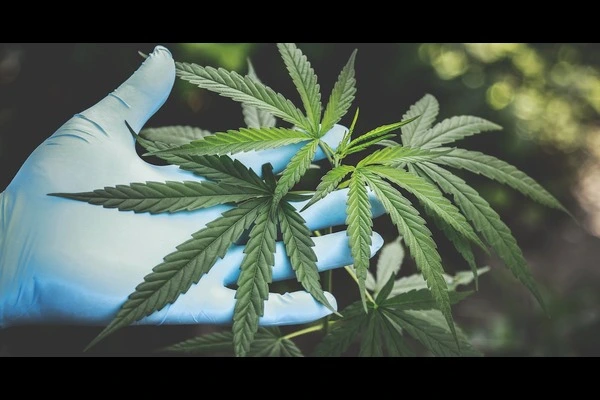In recent years, the use of cannabis, commonly known as weed, has gained significant attention for its potential therapeutic benefits. While there are various opinions and debates surrounding its consumption, many individuals have found relief from conditions such as depression and anxiety through its use. In this article, we will explore the reasons why some people find smoking weed helpful in managing their mental health, specifically addressing depression and anxiety. By understanding these perspectives, we can shed light on how cannabis can potentially provide a sense of calmness and peace to those who partake in its consumption.

1. Understanding the Relationship Between Weed and Mental Health
Smoking weed to manage mental health conditions is a topic that has attracted significant interest in recent times. While research on the subject is ongoing, anecdotal evidence suggests that certain compounds in cannabis, such as THC (delta-9-tetrahydrocannabinol) and CBD (cannabidiol), may interact with the brain’s receptors and influence mood and emotions. These interactions could potentially alleviate symptoms of depression and anxiety.

2. The Impact of Weed on Depression
Depression is a complex mental health condition characterized by persistent feelings of sadness, hopelessness, and a lack of interest in activities. Some individuals who struggle with depression have reported that smoking weed can provide temporary relief from these symptoms. The euphoric and uplifting effects of cannabis can enhance mood and induce a sense of happiness and relaxation. However, it’s crucial to note that weed should not be considered a long-term solution for depression, and professional help should always be sought.

3. How Weed Can Help Alleviate Anxiety
Anxiety disorders are another prevalent mental health issue affecting millions of people worldwide. Those who experience anxiety often deal with overwhelming worry, fear, and tension. Some individuals have reported that smoking weed can help alleviate anxiety symptoms by promoting a sense of calmness and reducing racing thoughts. Cannabis’ relaxing properties may help individuals achieve a state of relaxation and tranquility, enabling them to manage their anxiety more effectively.

4. Exploring the Role of Cannabis in Promoting Mental Calmness
One of the reasons why people turn to smoking weed is to achieve a state of mental calmness. Cannabis can induce a sense of relaxation, providing temporary respite from the daily stresses and anxieties of life. The act of smoking itself can also be a mindful experience, allowing individuals to focus on the present moment and let go of racing thoughts. This combination of relaxation and mindfulness can contribute to an overall sense of peace and well-being.

5. The Connection Between Weed, Peace, and Mindfulness
Weed has been associated with promoting mindfulness and peace in certain individuals. Mindfulness is the practice of being fully present and aware of one’s thoughts, feelings, and sensations in the present moment. Some individuals find that smoking weed enhances their ability to engage in mindfulness exercises, facilitating a deeper sense of inner peace. However, it’s important to note that the effects of weed on mindfulness can vary from person to person. Some individuals may find that it enhances their ability to focus and be present, while others may experience heightened distractions or difficulty maintaining mindfulness. It’s crucial to approach weed consumption for mindfulness purposes with self-awareness and moderation.

6. Different Strains for Different Needs
The world of cannabis offers a wide variety of strains, each with its own unique properties and effects. When managing depression and anxiety and promoting mental calmness, it’s essential to consider different strains and their respective cannabinoid profiles. Some strains high in CBD and low in THC may be more suitable for individuals seeking anxiety relief without the psychoactive effects commonly associated with THC. On the other hand, strains higher in THC may provide a more euphoric experience for those seeking temporary relief from depression. Understanding the characteristics of different strains can help individuals choose the most appropriate option for their specific needs.

8. Personal Stories: Testimonials from Individuals Who Find Relief
While some individuals find solace in smoking weed to manage their mental health, responsible consumption is of utmost importance. It’s crucial to be aware of local laws and regulations regarding cannabis use and to understand the potential risks and side effects associated with its consumption. Additionally, moderation and self-awareness are essential. Using cannabis as a coping mechanism should not replace seeking professional help or engaging in other evidence-based treatments for depression and anxiety.

9. Potential Risks and Side Effects of Smoking Weed
While cannabis may have potential therapeutic benefits, it’s important to acknowledge that it is not without risks. Smoking weed can have various side effects, including impaired cognitive function, memory problems, increased heart rate, and potential dependence or addiction. Individuals with a history of mental health conditions should exercise caution and consult with healthcare professionals before considering cannabis as a treatment option.

10. Seeking Professional Guidance and Support
Ultimately, when it comes to managing depression and anxiety and promoting mental well-being, it is essential to seek professional guidance and support. While smoking weed may provide temporary relief for some individuals, it should not replace comprehensive treatment plans tailored to individual needs. Mental health professionals can provide valuable insights, therapy, and evidence-based interventions to address the root causes of depression and anxiety and help individuals develop healthier coping strategies.

Conclusion
For some individuals, smoking weed has been reported to provide temporary relief from depression and anxiety while promoting mental calmness and peace. However, it’s important to approach cannabis consumption responsibly, considering individual needs, local regulations, and potential risks. Cannabis should not be viewed as a substitute for professional help and evidence-based treatments. By combining responsible consumption with professional guidance and support, individuals can navigate their mental health journeys effectively, seeking comprehensive solutions to address their needs and enhance their overall well-being.

